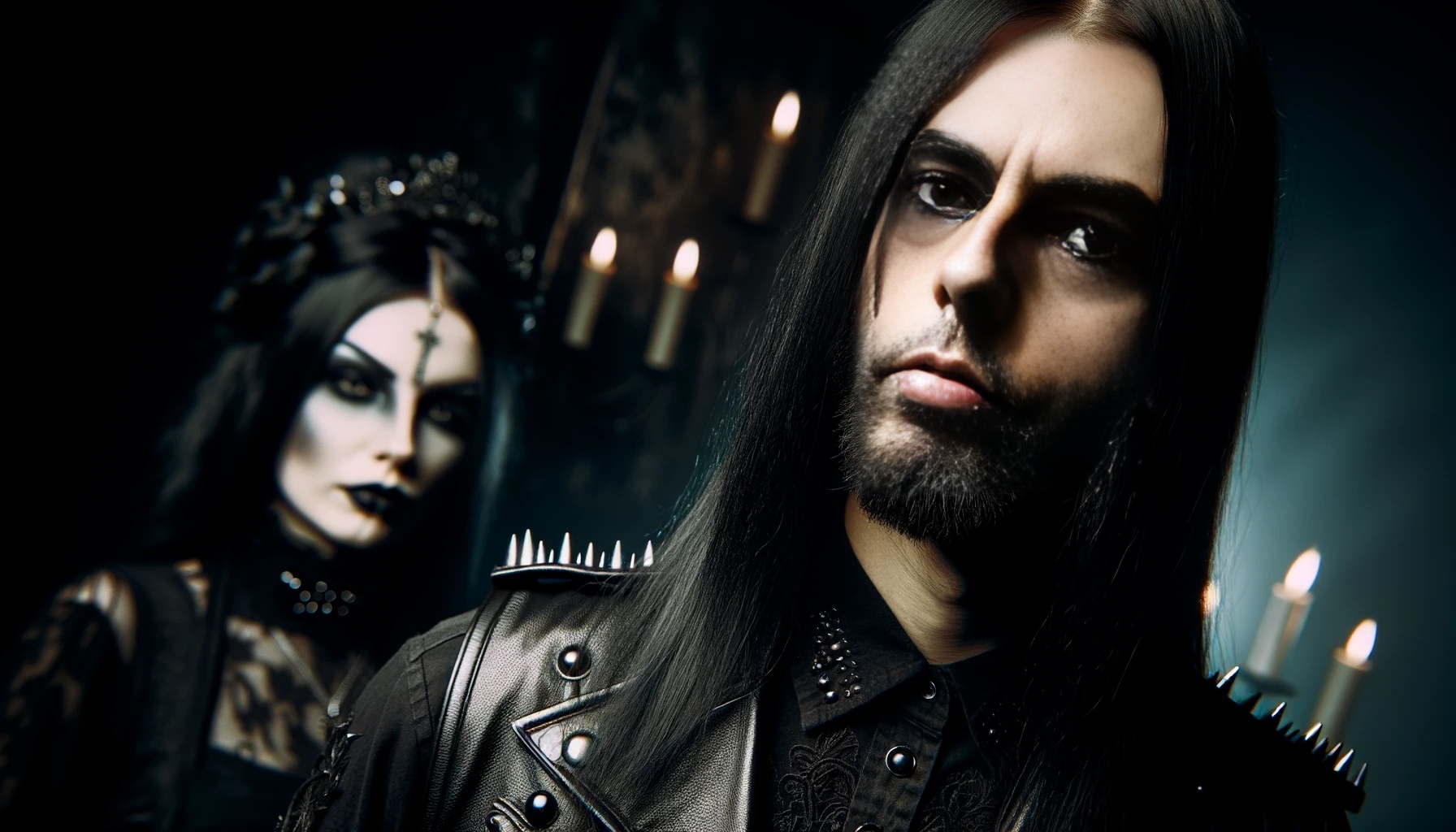Beyond the thunderous riffs and haunting melodies of heavy metal and goth music lies a hidden realm of intricate symbolism in their lyrics. To truly appreciate the essence of these genres, one must delve deep into the cryptic messages, occult themes, and existential ponderings that lie within the verses.
In this article, we embark on a bone-chilling journey through the evocative worlds of metal and goth lyrics, uncovering the layers of symbolism that resonate with the souls of metalheads and goth enthusiasts. Brace yourself for a harrowing and thought-provoking exploration into the minds of the musicians, where every line is a haunting tapestry of meaning.
1. Occult Themes and Dark Rituals: Both heavy metal and goth music often draw inspiration from the occult, weaving mysterious and arcane themes into their lyrics. From summoning ancient deities to exploring forbidden knowledge and dark rituals, these themes add an air of mystique and danger to the music.
Songs like Black Sabbath’s “N.I.B.,” which explores the story of Lucifer’s infatuation with humanity, and Type O Negative’s “Black No. 1,” which delves into the allure of gothic beauty and the dark arts, exemplify the intricate occult symbolism that pervades the lyrics of these genres.
2. Metaphorical Battles and Inner Demons: In the poetic verses of metal and goth music, battles are often fought on metaphorical battlegrounds, reflecting inner struggles and existential ponderings. These lyrics become a cathartic outlet for both musicians and listeners to confront their demons and explore the complexities of the human psyche.
Tracks like Slayer’s “Seasons in the Abyss,” which contemplates the ever-present battle between good and evil within ourselves, and The Sisters of Mercy’s “This Corrosion,” which symbolizes a personal struggle with addiction and self-destructive tendencies, showcase the deeply personal and introspective nature of the lyrics.
3. Embrace of Darkness and Isolation: Themes of darkness, solitude, and alienation are recurring motifs in both metal and goth music. These lyrics often resonate with those who find solace in the shadows and seek a sense of belonging in a world that may not understand them.
Bands like Paradise Lost, with their song “True Belief,” which delves into feelings of isolation and the quest for truth, and Joy Division’s haunting “Shadowplay,” which evokes a sense of despair and detachment, exemplify the embracing of darkness and the exploration of the human condition through the lens of goth and metal lyrics.
4. Symbolic Mythology and Archetypes: Metal and goth music often draw upon mythological and archetypal symbols to weave tales of epic proportions. These symbolic narratives resonate with audiences, tapping into collective subconscious and universal themes.
Songs like Iron Maiden’s “The Number of the Beast,” which draws from biblical symbolism, and Bauhaus’s “Bela Lugosi’s Dead,” which pays homage to the iconic horror actor, exemplify how metal and goth lyrics embrace mythological and archetypal elements to create powerful and resonant storytelling.
5. Rebellion and Socio-Political Commentary: Both genres have a history of expressing rebellion and socio-political commentary through their lyrics. Metal and goth musicians have used their platform to address societal issues and challenge the status quo, often adopting a harsh and provocative tone.
Rage Against the Machine’s “Killing in the Name,” a powerful anthem against police brutality and institutional racism, and The Cure’s “Killing an Arab,” inspired by Albert Camus’ “The Stranger” and commenting on racial prejudice, showcase the fearless and unapologetic nature of the lyrical themes in these genres.
6. The Unveiling of Human Nature: Metal and goth lyrics have a unique way of peeling back the layers of human nature, exposing the raw emotions and darkest desires that lie within us all. These lyrics become a mirror, reflecting the complexities and contradictions of the human experience.
Tracks like Opeth’s “Ghost of Perdition,” which delves into themes of vengeance and fate, and Siouxsie and the Banshees’ “Spellbound,” which explores the intoxicating nature of desire, exemplify how metal and goth lyrics serve as a reflection of the human psyche.
Conclusion: As we traverse the intricate symbolism in heavy metal and goth lyrics, we find ourselves immersed in a world of mystique, introspection, and existential questioning. The lyrics become more than just words; they are haunting tapestries of meaning that resonate with the souls of metalheads and goth enthusiasts, offering solace, catharsis, and a deeper understanding of the human experience.
In the darkness of these verses, we find a profound reflection of our own struggles, desires, and fears, drawing us closer to the very essence of what it means to be human. The symbolism in heavy metal and goth lyrics transcends mere music and becomes a powerful exploration of the human psyche—a journey that lingers long after the final note has faded into the abyss.
You should go follow me on social media and then return back to the home page and read something else.
Follow me on social media


